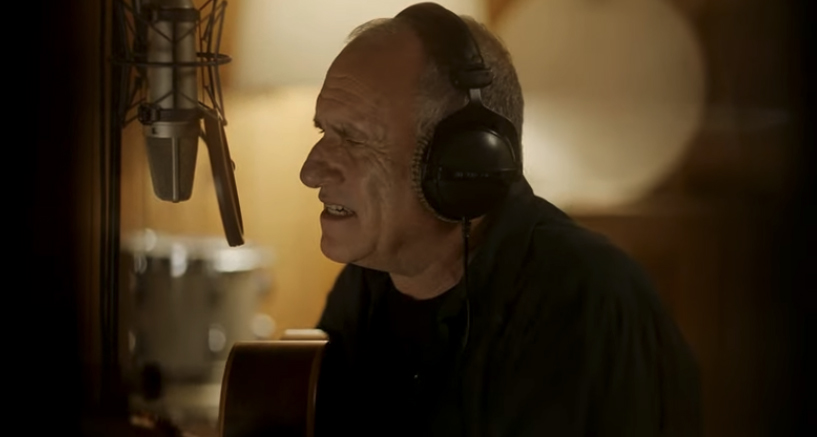by Araceli Martínez
Internationally renowned Israeli singer-songwriter David Broza, recognized for his dynamic guitar playing and humanitarian efforts, released on January 27, La Mujer Que Yo Quiero, the Spanish version of the epic album Ha’isha She’iti, released to the public. 40 years ago, and which has been the best-selling album in Israel’s recording history.
The idea of La Mujer Que Yo Quiero was to make emotional versions of the songs with only voice and guitar. The work was a strong process; and it is reported that during the recording, Broza sang for eight hours, barely stopping for coffee.
“Only after the session was over did I realize that I had immersed myself in the songs with all my body and soul. It was so intense that it took me several days to relax,” says Broza.
The result is a stark and pure performance, in a live recording of Ha’isha She’iti’s songs, now sung in Spanish.
The original album was a tribute to popular music in Spanish in the late 70’s and early 80’s.
The new album La Mujer que yo Quiero brings music back to its roots, with songs performed in Spanish just as they were originally written.
40 years ago, the songs of Ha’isha She’iti were meticulously translated into Hebrew by the great Israeli poet Jonathan Geffen, with a fluency that made them seem originally written in Hebrew, so much so that few people remember that the songs originated in Spain. .
During the last few years, Broza performed the songs live, mixing the Spanish lyrics with the Hebrew ones. This aroused in Broza the idea of recording a version completely in Spanish on the occasion of the album’s 40th anniversary.
With that in mind, in October 2022, Broza traveled to Madrid, Spain, and recorded the album in one take, during one day, meanwhile the preparation took more than a month, with rehearsals for long hours.
In total, nine songs made up the entire album. Only one song from the Ha’isha She’iti, “Rumba”, written by Broza with Geffen, was originally sung in Hebrew.
“Rumba” was replaced on La Mujer Que Yo Quiero by “La Más Bella Niña,” another translated song that was not part of the Ha’isha She’iti. The theme is a poem from Spain in the 16th century by Luis de Góngoras, with a melody by the musician Paco Ibañez.
“La Más Bella Niña” was the first song that Jonathan Geffen translated into Hebrew and the song that started this project more than 40 years ago.
Broza’s signature sound brings together songs in Hebrew, Spanish, and English, influenced by Spanish flamenco, American folk, rock and roll, and poetry.
Advocacy for social justice and peace are embedded in his musical work, and his 1977 hit song “Yihye Tov” remains an Israeli peace anthem.
He has more than 40 albums released, many of which are multi-platinum. Broza’s travels have contributed to his international sound and his commitment to human connection, storytelling and equality.
The singer-songwriter’s charismatic, vibrant and passionate energy is far-reaching and has a global impact. If you want to know more about Broza, visit his website: www.davidbroza.net



